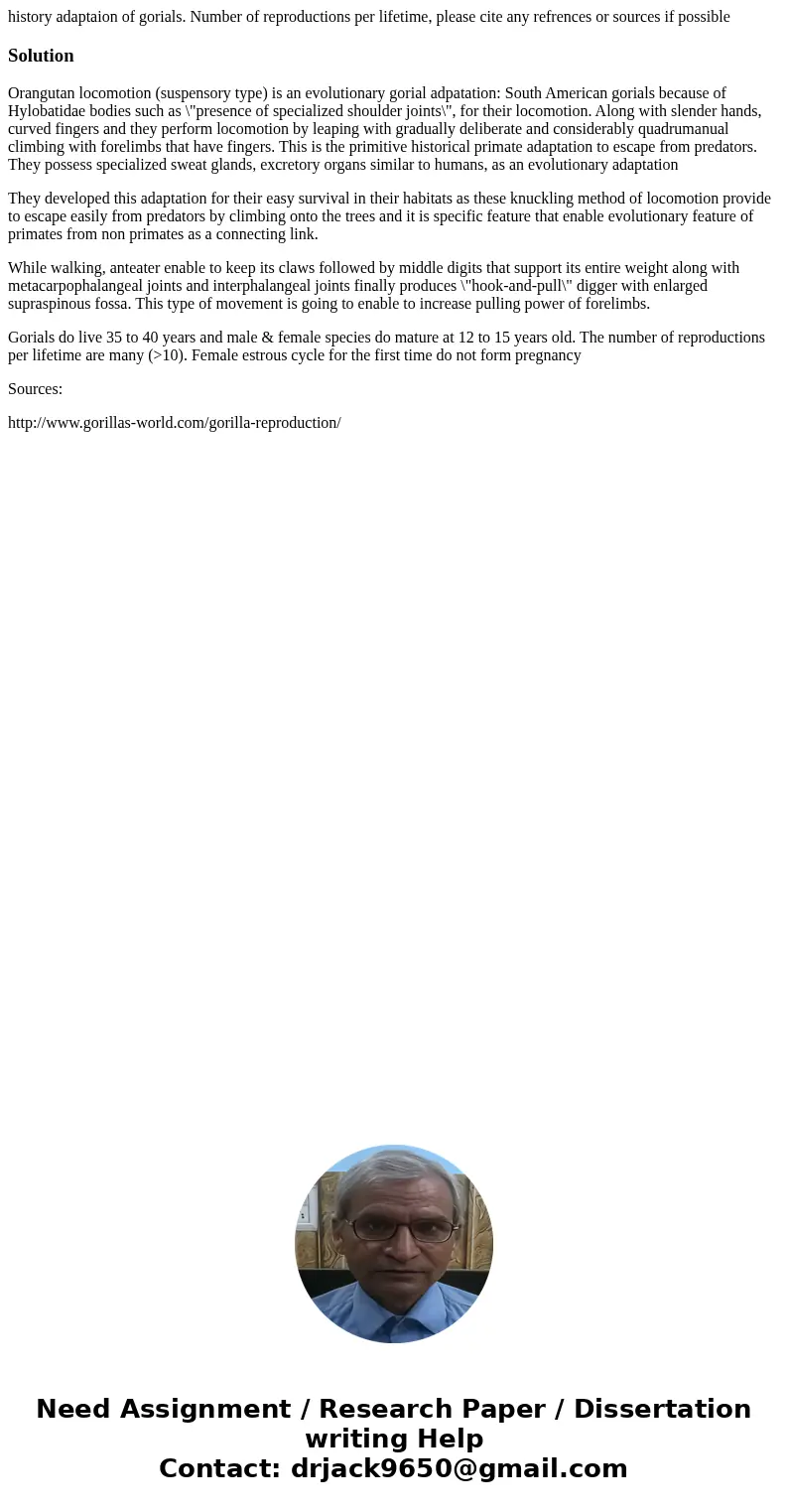history adaptaion of gorials Number of reproductions per lif
history adaptaion of gorials. Number of reproductions per lifetime, please cite any refrences or sources if possible
Solution
Orangutan locomotion (suspensory type) is an evolutionary gorial adpatation: South American gorials because of Hylobatidae bodies such as \"presence of specialized shoulder joints\", for their locomotion. Along with slender hands, curved fingers and they perform locomotion by leaping with gradually deliberate and considerably quadrumanual climbing with forelimbs that have fingers. This is the primitive historical primate adaptation to escape from predators. They possess specialized sweat glands, excretory organs similar to humans, as an evolutionary adaptation
They developed this adaptation for their easy survival in their habitats as these knuckling method of locomotion provide to escape easily from predators by climbing onto the trees and it is specific feature that enable evolutionary feature of primates from non primates as a connecting link.
While walking, anteater enable to keep its claws followed by middle digits that support its entire weight along with metacarpophalangeal joints and interphalangeal joints finally produces \"hook-and-pull\" digger with enlarged supraspinous fossa. This type of movement is going to enable to increase pulling power of forelimbs.
Gorials do live 35 to 40 years and male & female species do mature at 12 to 15 years old. The number of reproductions per lifetime are many (>10). Female estrous cycle for the first time do not form pregnancy
Sources:
http://www.gorillas-world.com/gorilla-reproduction/

 Homework Sourse
Homework Sourse